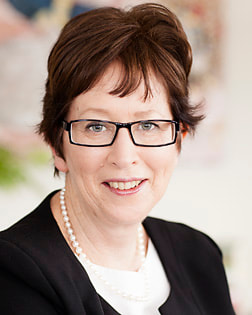|
We left the paediatrician's office feeling shocked, gutted, and numb. We were told that our child's delayed development could be an indication of Autism Spectrum Disorder. We were barraged with names and details of specialists who could continue assessing Henry and provide therapeutic support. What? Autism? In the days that followed we watched Henry's every move, his every expression, the way he played, ate, and interacted. The way we saw our beautiful boy had changed since the excruciating hour and a half we spent answering questions, completing questionnaires, and trawling through our memories of Henry's developmental milestones (or lack thereof). With each milestone he appeared to have 'failed', our hearts sank further and further. We were reassured about the services that could help Henry to learn some of the skills he would need in life - a life we now imagined playing out in the bleakest of ways. We began contacting the names of the practitioners we had been given. Dying inside that our boy was now going to be scrutinised, assessed, and labelled. Putting one foot in front of the other, we followed directions to implement assessment and support services for Henry. But who is there to support us? Who can help us to cope with the grief, the trauma, the rising panic? How do we parent our boy now? Who are we now? What does this mean for our other children? When a child is diagnosed with a developmental disorder such as Autism Spectrum Disorder, there are a multitude of services to support the child. But parents often feel out at sea themselves. Where do they turn to understand their role as parents? Who do they see to recalibrate their views and expectations of their child? How do they manage with the challenges their child brings to the family?  Dr Alison Wilby is a Clinical Psychologist who supports parents facing developmental concerns in their young children (under 8 years old). Alison understands the trauma, the profound disappointment, and the fear that parents can feel when they are told there is 'something wrong' with their child. Integrating over 20 years of working with new parents and young children (particularly where there are significant developmental challenges), and with a PhD on the role of parenting in early social emotional development, Alison is well placed to support parents traversing the multidisciplinary landscape of the Autism Spectrum. Alison is a warm and caring practitioner who helps parents understand how their child thinks and behaves within the challenges and strengths each child displays. Alison provides assessment and support for parents who are concerned about the development of their infant or child, and she provides tools to manage difficult behaviour while helping parents to gain clarity on the underlying causes. Alison has a particular interest in Autism Spectrum Disorder and anxiety disorders in early childhood, including young children with selective mutism. With her background in parent-infant settings, Alison works with children who have been affected by a parent’s mood disorder. In situations where mothers have been hospitalized, Alison supports children who are struggling with the distress of separation. Irrespective of the diagnosis a child might receive, Alison assists parents to build confidence in their parenting, working with couples to help them to determine optimal strategies for parenting their particular child. Alison's ultimate aim is to help parents to parent with love and acceptance of their child, and to see the unique capabilities that every individual child possesses. Alison is located in Melbourne’s south east (Caulfield North, Hampton and Glen Iris). Read more about Dr Alison Wilby here: https://www.antenatalandpostnatalpsychology.com.au/dr-alison-wilby Article written by Dr Renée Miller Principal Clinical Psychologist Antenatal & Postnatal Psychology Network Comments are closed.
|
AuthorPosted by Dr Renée Miller Topics
All
|
|
We acknowledge and pay respects to the Elders and Traditional Owners of the land on which our psychologists practise.

 RSS Feed
RSS Feed

